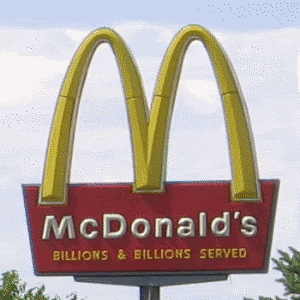new ETFF transcripts: Gerrold and Price

Science fiction is the most subversive of all literary genres. You can get away with stuff in science fiction that you can't get away with anywhere else, because half the time, the people you are holding up to the light don't even realize that you're doing it. —David GerroldThree new transcripts I did have been added to the Equal Time for Freethought archives.
This is an informal chat with the renowned science fiction writer, touching on his experience with Star Trek, and his novels such as The Man Who Folded Himself, When H.A.R.L.I.E Was One, the War Against the Chtorr series, and The Martian Child, together with his real-life parenting experiences that formed the inspiration for the novel. As it so happens, the latter is the basis for a movie that's coming out this June. I wrote about this show when it first aired, in one of the earliest posts ever on this blog.
- two Robert M. Price interviews with Neil J. Murphy: June 11, 2006 (Da Vinci Code) and December 25, 2005 (Christmas)

(thanks to Wikipedia for the images; sources here, here, here, and here; Creative Commons, public domain, and fair use images)
Neil concludes that "Dan Brown has raised the right questions with the wrong answers". Along the way, Price even slips in a sci-fi reference, with a sly example from the mythos of Superman comics.
By the way, one issue dealt with tangentially is the lack of Crucifixion revisionism in DVC. While doing the transcript, I found an interesting quote from Brown in his witness statement in the court case between him and Baigent and Leigh. I think this says it all:
One of the ideas in Holy Blood, Holy Grail — perhaps even the central idea — is advertised on the back of my copy of the book: "Is it possible Christ did not die on the cross?". This is not an idea that I would ever have found appealing. Being raised Christian and having attended Bible camp, I am well aware that Christ's crucifixion (and ultimate resurrection) serves as the very core of the Christian faith. It is the promise of life everlasting and that which makes Jesus "the Christ". The resurrection is perhaps the sole controversial Christian topic about which I would not dare write; suggesting a married Jesus is one thing, but undermining the resurrection strikes at the very heart of Christian belief.Personally, I don't know what to make of the DVC furor; as silly as it's gotten, the book's themes do address a lot of unanswered questions people have. The whole aspect of fictional works whose authors exaggerate their basis on fact is nothing new; for instance The Texas Chainsaw Massacre, with its tagline "What happened is true. Now the motion picture that's just as real." (As snopes sez: "Sort of.") And really, it's hard to hate a book, no matter how bad, that includes references to Project Gutenberg in the acknowledgements and a pretty obvious allusion to the feminist classic The Chalice and the Blade (also on the DVC official bibliography).

Comments
By the way, his prequel novel, Angels and Demons, though in some ways it's more exciting than Code, has even more blatant historical errors.
I also have to grump about what Seidman says in the Gerrold interview: "Personally, I think NextGen did a pretty decent job. I think where it started falling apart was by the time it got to Deep Space Nine and Voyager, that obviously they were playing it not to lose, and lost anyway, in my opinion." As I see it, Deep Space Nine was the one Trek show that took the most risks and was the least concerned with staying within the lines. To mention it in the same breath as the formulaic Voyager is blasphemy!